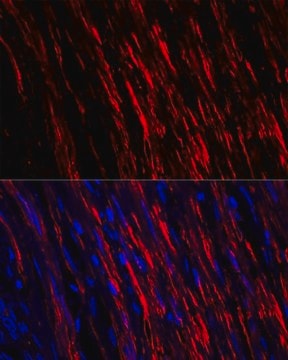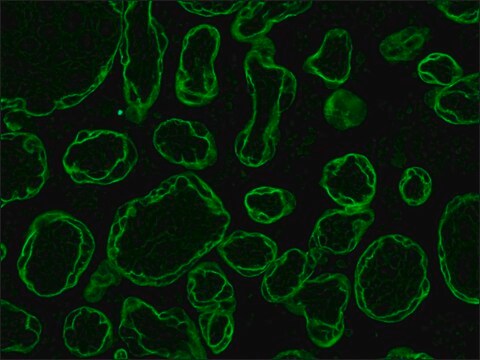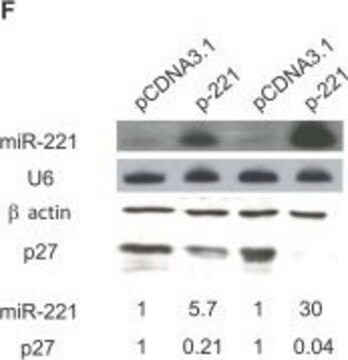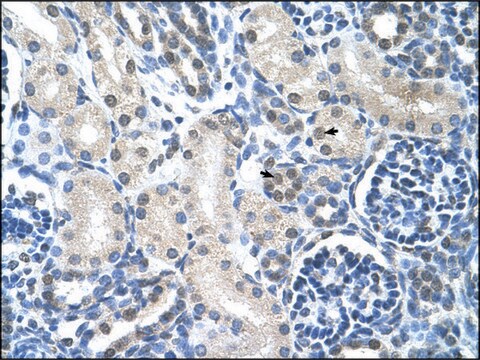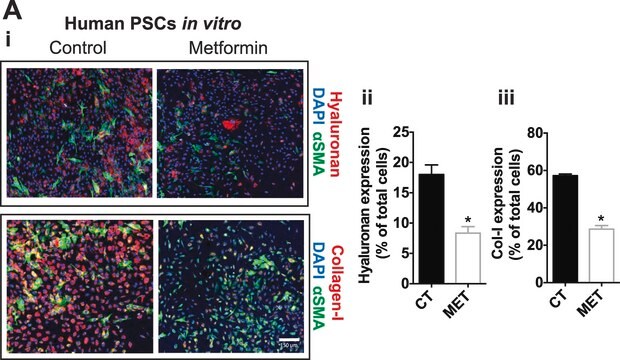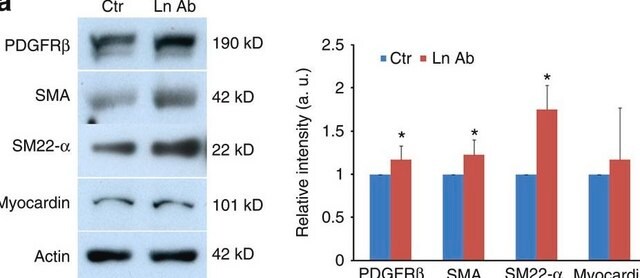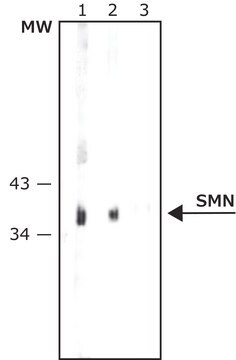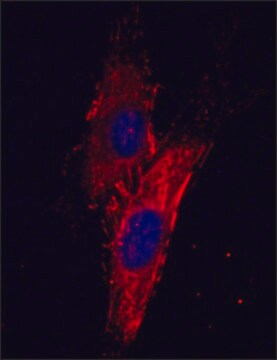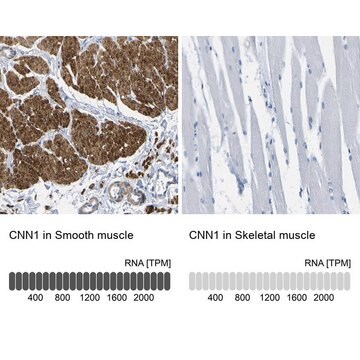SAB5500002
Anti-α-Smooth Muscle Actin (ACTA2) Antibody,
rabbit monoclonal, SP171
About This Item
Polecane produkty
Nazwa produktu
Anti-SMA antibody, Rabbit monoclonal, clone SP171, recombinant, expressed in proprietary host, affinity isolated antibody
pochodzenie biologiczne
rabbit
Poziom jakości
rekombinowane
expressed in proprietary host
białko sprzężone
unconjugated
forma przeciwciała
affinity isolated antibody
rodzaj przeciwciała
primary antibodies
klon
SP171, monoclonal
reaktywność gatunkowa
human (tested)
reaktywność gatunkowa (przewidywana na podstawie homologii)
rabbit, rat, bovine, chicken, mouse, pig
metody
immunoblotting: 1:50
immunohistochemistry: 1:200
izotyp
IgG
numer dostępu UniProt
Warunki transportu
wet ice
temp. przechowywania
2-8°C
docelowa modyfikacja potranslacyjna
unmodified
informacje o genach
human ... ACTA2(59)
Opis ogólny
Immunogen
Zastosowanie
- western blotting
- immunohistochemistry
- immunofluorescence
Działania biochem./fizjol.
Cechy i korzyści
Postać fizyczna
Oświadczenie o zrzeczeniu się odpowiedzialności
Nie możesz znaleźć właściwego produktu?
Wypróbuj nasz Narzędzie selektora produktów.
Kod klasy składowania
10 - Combustible liquids
Klasa zagrożenia wodnego (WGK)
WGK 2
Temperatura zapłonu (°F)
Not applicable
Temperatura zapłonu (°C)
Not applicable
Wybierz jedną z najnowszych wersji:
Masz już ten produkt?
Dokumenty związane z niedawno zakupionymi produktami zostały zamieszczone w Bibliotece dokumentów.
Klienci oglądali również te produkty
Nasz zespół naukowców ma doświadczenie we wszystkich obszarach badań, w tym w naukach przyrodniczych, materiałoznawstwie, syntezie chemicznej, chromatografii, analityce i wielu innych dziedzinach.
Skontaktuj się z zespołem ds. pomocy technicznej

